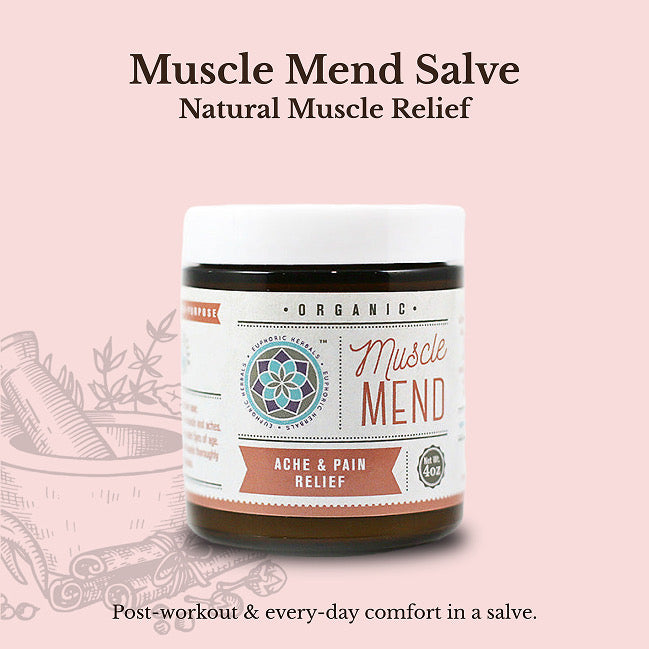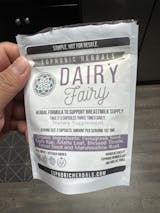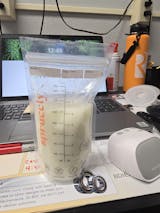There are a million and one things to think about now that you are a new mother and want to breastfeed your baby. Special considerations sometimes have to be made if you notice that your little one doesn’t seem quite relaxed enough to feed. Your baby might have a case of hypertonia, also known as high muscle tone, which makes them hold their head, arms, leads, and torso rigidly. When this happens, breastfeeding can become far more stressful.
High muscle tone will affect breastfeeding, but with a little work, you can make your baby feel more comfortable—and make breastfeeding a more pleasant experience for you both.
What is Muscle Tone?
Most people think of “tone” as a way to describe the way something sounds or the degree of someone’s muscle definition. While this is not wrong, “muscle tone” actually refers to the length of a muscle when it is at rest, not during contraction. Tone is, therefore, resistance present in a passive moment.
Strength vs. Tone
Because of the fact stated above, tone and strength are often confused. Strength is the ability of a muscle to contract and create force in response to some kind of resistance, such as a push or pull. Yet, someone who has high muscle tone is not necessarily strong, just as someone with low muscle tone is considered weak. Whenever a muscle is not in the prime position, it will be weaker.
What is Hypertonicity?
But what happens when a baby has low muscle tone (hypotonicity) or high muscle tone (hypertonicity)? Low muscle tone causes something called “floppy baby syndrome,” which is the opposite of high muscle tone. With hypertonicity, a baby will be very stiff and hold themselves rigid no matter what. Hypertonia also makes babies uncomfortable, so they will tend to be more fussy.
Causes of High Muscle Tone in Babies
Muscle tone is affected by the baby’s position in the uterus, birthing practices, pain, and even neurological disorders. Some babies that are born with high muscle tone will develop cerebral palsy. Sometimes, babies that are famished will also get high muscle tone. This includes newborns and those that are underweight.
If you have any concerns about your baby’s hypertonicity, contact your healthcare professional for more information.
Hypertonia From Allergies or Pain
Another reason your baby could suddenly become hypertonic is because of gut pain caused by allergies (or any other painful condition). Babies that have difficultly with latching on or suckling, or those that are very restless or resist breastfeeding are likely to have high muscle tone.
Babies that are in pain or distressed will not always cry. Often, they will hold their tension in the jaw and exert force on the nipple. This will be doubtlessly painful for the mother, who will have painful, damaged nipples, as well as creasing and mastitis.
If you feel that the high muscle tone is a response to pain or discomfort, you can try to figure out what you are eating that is causing the food intolerance and eliminate some foods from your idea. You can also work on holding the breast more firmly while breastfeeding to see if it is a latch problem.
You can also discuss what is happening with the certified lactation consultant or discuss the potential of your baby having food allergies with a medical professional.
High Muscle Tone and Breastfeeding
High muscle tone is often the cause of several breastfeeding issues, including:
- Tight jaw that stops the baby from opening their mouth wide enough to take the breast
- Restricted tongue movement that causes the baby’s tongue to bunch up or retract
- Clamping down on the breast. This may occur if your baby is hungry and is having trouble with a fast flow of milk.
- Baby may gag during feeding
- Nipple damage and pain during breastfeeding for the mother
Any of these problems can result in painful breastfeeding for the mother and less milk and nutrition for the baby. That is why you should try to get help for hypertonia as soon as possible.
How To Help Relax The Muscles
If you baby continues to display high muscle tone, but hunger and poor latching has been ruled out, then you might want to consider helping your little one relax somewhat. Here are some relaxation methods you and your baby can enjoy together:
- Enjoy skin-to-skin contact for at least several hours a day.
- Breastfeed in quiet environments so that the baby is not overly stimulated.
- Swing your baby side to side or rock them in a cradle. If you want, you and your partner can make a blanket cradle to rock the baby between the two of you.
- Hire a physical therapist or occupational therapist to perform cranial therapy.
- Spend some time on the belly. Lean back and let your baby lay against your stomach, belly down. This can be relaxing and heighten your bond.
Tips For Breastfeeding a Baby With Hypertonia
Babies that become hypertonic during breastfeeding will also need some extra care. Here are some specific tips for handling a baby with high muscle tone:
- Engage in plenty of skin-to-skin contact before the feeding.
- Try a more natural position, such as laying back.
- Try a rugby hold or the colic hold. With the colic hold, you drape your baby over your forearm, tummy facing the arm, and let their appendages hang.
- Use the charm hold before breastfeeding. The charm hold is very useful for babies who cannot or will not extend their tongues. (See below for charm hold instructions.)
- Try finger feeding. Either prone or held in the crook of the arm, you can use your finger as a way to train your baby before actual feeding.
How To Do The Charm Hold
Here is how to do the charm hold:
- Lay the baby across your lap, face down.
- Flex the hips.
- Support your baby’s forehead with your hand’s heel then extend your index finger for the baby to suck on.
- Wait until the tongue relaxes.
- Once the tongue has relaxed, you can immediately turn the baby into a comfortable feeding position and give them your breast.
Conclusion
Babies who have high muscle tone will not be as relaxed and willing to breastfeed—and this can cause pain for you. Thankfully, there are techniques and exercises that you can use to help relax your baby and ensure that they are getting properly fed.
If you cannot rule out hunger or a poor latch as the cause of hypertonia, be sure to contact your doctor or talk to a lactation consultant, especially if your baby is not gaining weight.




























































































































































































